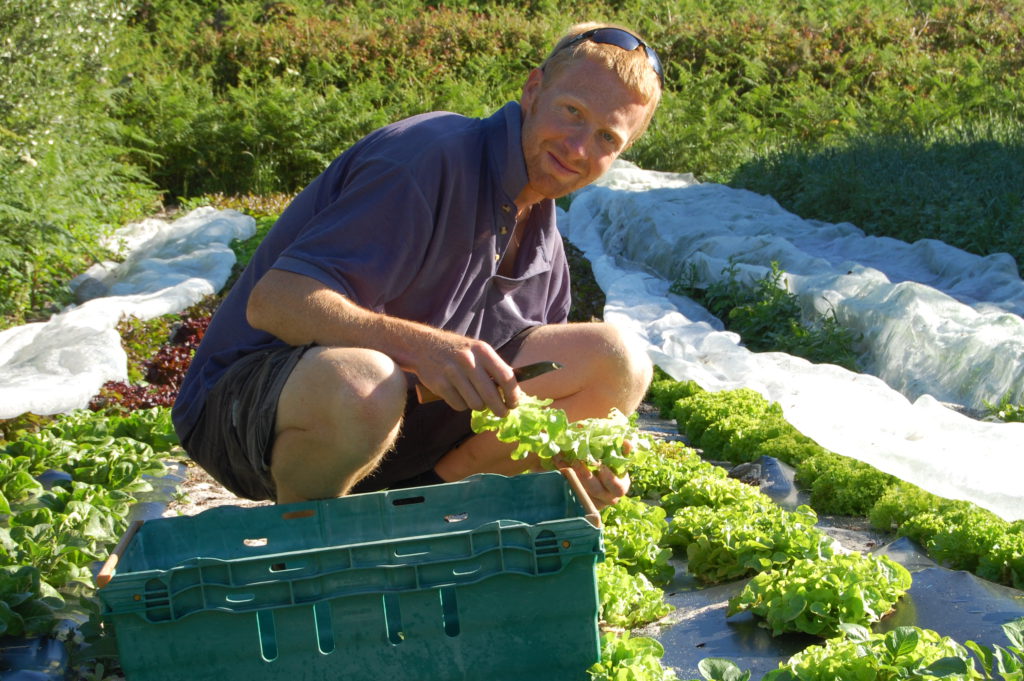As a grower of organic vegetables, my day always starts on the farm.

Depending on the time of year, I need to open polytunnels, water plants, and harvest crops. I sell all my produce locally on the Isles of Scilly where I live and work, so once harvested I will go and deliver the veg to the point of sale. I also have to fit in planting, sowing, weeding and other jobs.
Being a grower gives me huge pleasure, despite the challenges, but also a grounded perspective on farming, growing and carbon management on farms. I look at my farm often through a carbon lens, and making management decisions to minimise carbon emissions, whilst maximising carbon sequestration feels second nature. My farm business has been consistently carbon-negative for many years.
After lunch, I put a different hat on and work for Farm Carbon Toolkit as the Impact Manager. Having previously led the Farm Carbon Calculator development (since its creation in 2009), this new role gives me a different perspective on the organisation. My primary aim is to understand how we measure the impact of the work we do, and to help the organisation increase its impact. Many organisations in the social enterprise sector are very driven by social and environmental change, but can easily overlook how effective their work is and what change it’s delivering. After all, this is a primary reason many of us in FCT are in the organisation!
Day to day, I work across the organisation in trying to measure what we do currently, and how to collect that information. Once I have that, I’m involved in understanding what the opportunities are for change in the way we operate. This work feeds into the day-to-day work on communications, as well as the longer-term strategy work focussed on the next three years. At the end of the day, we want to help as many farmers and growers as possible reach carbon net zero or beyond.
As a Director, I also have oversight of the organisation, and this is a role I enjoy a lot. However my favourite parts are talking to the farmers and growers who are on the journey to net zero – or already there, and seeing the changes they’ve implemented. That is always inspiring and makes the work of the organisation very tangible.

